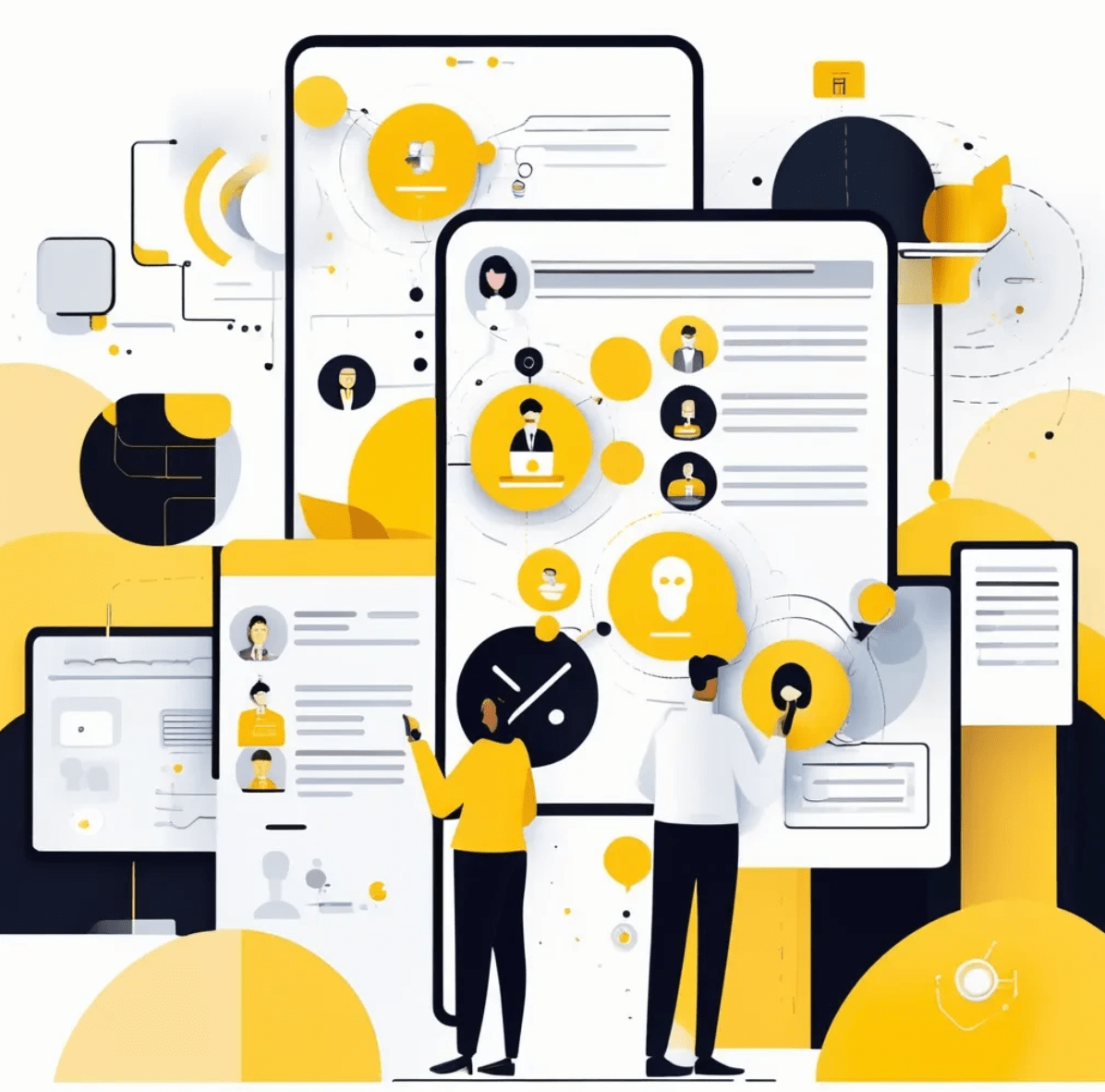
Finding the right talent quickly and efficiently is crucial for companies to stay competitive. Recently, we had the opportunity to work with a leading recruitment company to explore how artificial intelligence could transform their recruitment process. This blog post shares our experience developing a Proof of Concept (PoC) that showcases AI’s potential to revolutionize talent acquisition.
Our client, a prominent recruitment industry player, approached us with a vision to leverage AI technology in their recruitment process. They aimed to replicate the nuanced understanding that experienced recruiters achieve during interviews, but at a scale and consistency only AI can provide.
Why start with a proof of concept?
Before full-scale development, we opted for a PoC approach for several reasons:
- Validating technical feasibility: We needed to test if AI could effectively conduct nuanced interviews, extract complex information, and accurately match candidates to jobs.
- Mitigating risks: A PoC provided a controlled environment to identify potential ethical concerns, assess data privacy implications, and evaluate AI decision-making for bias.
- Stakeholder buy-in: Tangible results from a PoC would help secure support from recruitment professionals, company leadership, and potential clients.
- Refining the concept: Early feedback and identifying unforeseen challenges allowed us to refine our approach before full development.
- Cost-effective exploration: A PoC requires less investment than building a full MVP and managing financial risks while exploring innovative solutions.
This has been our standard for these use cases, with proven results in the past.
Defining our proof of concept goals
Through collaborative discussions with our client, we identified two primary objectives for our PoC: extracting vital candidate information and accurately matching and scoring.
For the first goal of extracting vital candidate information, we wanted to develop an AI system that could:
- Conduct in-depth, conversational interviews
- Gain insights into cultural fit, personal ambitions, and soft skills
- Generate a comprehensive candidate profile based on these interactions
This approach aimed to capture the nuanced understanding skilled recruiters achieve during interviews but with the added benefits of AI’s scalability and consistency.
For the second goal of accurately matching and scoring, we wanted to leverage the extracted information to:
- Match candidate profiles against various job descriptions
- Generate an accurate score for each candidate-job pairing
The ultimate goal was to create a system where recruiters only needed to focus on the top-scoring candidates, significantly streamlining the recruitment process.
Developing the proof of concept
Our PoC development focused on two main areas the AI system development and the user interface and experience design.
For the AI system development, we utilized advanced language models and custom prompts for recruitment tasks, including:
- Designing natural conversational flows
- Developing algorithms for response analysis and profile generation
- Creating an accurate scoring system for job matching
We built a sophisticated chat interface and tested different models, including GPT-4, Google’s Gemini, and Anthropic’s Claude. We also engineered various prompts to optimize performance:
- Interview prompt: The AI leveraged existing context and suggested questions to assess different areas of the candidate’s profile. This allowed for dynamic, context-aware interviews that could dive deep into relevant areas.
- Profile generation prompt: A separate prompt was used to synthesize information from the chat and generate a comprehensive candidate profile.
- Job matching prompt: A third prompt was developed to score the generated profile against specific job descriptions, providing an objective measure of candidate-job fit.
In terms of user interface and experience design, we created an interactive prototype featuring an AI-driven interview interface, a candidate profile analysis dashboard and a job matching interface with candidate scores.
To make the system accessible and user-friendly, we integrated our AI components into a Svelte application. This modern, lightweight framework allowed us to create a responsive and intuitive interface that could be easily accessed and tested by our client.
Key features of our technical implementation included:
- Real-time chat functionality with AI-powered responses
- Dynamic profile generation based on chat inputs
- Automated job matching and scoring
- Secure data handling and privacy measures
The results: a promising future for AI in recruitment
Initial internal testing showed promising results, suggesting significant potential for improved efficiency in recruitment processes:
- The system successfully conducted nuanced, conversational interviews, extracting relevant information about candidates’ skills, experiences, and cultural fit. This demonstrates the potential for AI to assist in initial candidate screenings at scale, significantly reducing the time burden on human recruiters.
- The AI system effectively synthesized information from interviews to create detailed candidate profiles. This showcased the potential for more consistent and thorough candidate evaluations, capturing nuances that might be missed in traditional recruitment processes.
- The scoring algorithm we developed showed promising results in matching candidate profiles with job descriptions. This suggests the potential for AI to significantly streamline the initial stages of candidate selection, allowing recruiters to focus their efforts on the most promising candidates.
As we move forward, we’re excited about the possibilities this opens up for the recruitment industry. By leveraging AI, recruitment companies can:
- Significantly reduce time-to-hire
- Improve the quality of candidate matches
- Enhance the candidate experience through personalized interactions
- Provide more valuable insights to recruiters and hiring managers
The success of this PoC has laid a strong foundation for further innovation in the field, and we look forward to seeing how AI will continue to transform the recruitment landscape.
The Non-Technical Founders survival guide
How to spot, avoid & recover from 7 start-up scuppering traps.
The Non-Technical Founders survival guide: How to spot, avoid & recover from 7 start-up scuppering traps.
